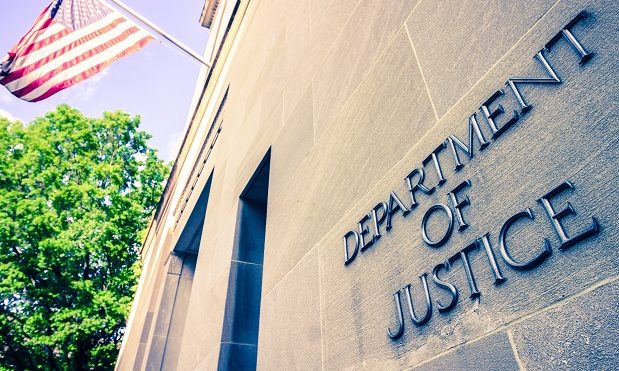 The pandemic-compelled closures of hospitals and doctors' offices in 2020 to all but emergency cases spurred the use of telehealth and a shift in DOJ's focus to illegal Medicare and Medicaid claims. ( Photo: Diego M. Radzinschi/ALM)
The pandemic-compelled closures of hospitals and doctors' offices in 2020 to all but emergency cases spurred the use of telehealth and a shift in DOJ's focus to illegal Medicare and Medicaid claims. ( Photo: Diego M. Radzinschi/ALM)
The U.S. Department of Justice's efforts to enforce the False Claims Act in the health care industry have shifted from hospitals and brick-and-mortar medical practices to bogus reimbursement claims in telehealth, corporate lawyers said this week.
The FCA allows the DOJ, as well as private plaintiffs, to sue individuals, companies or other entities that may have defrauded the government.
Recommended For You
The act has been the DOJ's "most effective anti-fraud enforcement tool for many, many years. The recoveries they have got are in the billions," said Meredith Auten, a partner at Morgan, Lewis & Bockius.
"Health care and life sciences has been the focal point of enforcement by both the DOJ and the private whistleblowers for the last number of years," Auten said, adding that more than 70% of recoveries, judgments and settlements have been in the health care and life science industry.
The pandemic-compelled closures of hospitals and doctors' offices in 2020 to all but emergency cases spurred the use of telehealth and a shift in DOJ's focus to illegal Medicare and Medicaid claims for medical services provided remotely.
Typical trends in DOJ's false claims enforcement continued to include cases being "brought for lack of medical necessity of services, for billing for patients that you never saw, for upcoding on claims to try to get a bigger reimbursement than you would be entitled to, a lot of those theories remain today," Auten said.
Amid this shift in focus to telehealth, the DOJ still has the daunting legal task of proving that a defendant's allegedly false claim to the government was "material" in that it had a "natural tendency to influence, or be capable of influencing, the payment or receipt of money or property," according to the U.S. Supreme Court's 2016 decision in United Health Services v. United States ex rel. Escobar.
"In that decision, the Supreme Court said materiality is a rigorous and demanding standard under the False Claims Act," Auten said. "In order to meet that standard, it has to have mattered, whatever the misrepresentation or the fraud committed by the defendant has to have mattered in a significant way to the government's decision to pay the claim."
Legislation before Congress would ease the DOJ's burden by relaxing the strict materiality requirement for FCA cases filed after the bill's enactment.
The proposed False Claims Act Amendments of 2023 would provide that "in determining materiality, the decision of the Government to forego a refund or to pay a claim despite actual knowledge of fraud or falsity shall not be considered dispositive if other reasons exist for the decision of the Government with respect to such refund or payment."
The bill was introduced last month by Sen. Chuck Grassley, R-Iowa, and is co-sponsored by Sen. Dick Durbin, D-Illinois.
Daniel Ahn, a partner at Reed Smith, said the legislation would bring clarity to the materiality issue that has divided courts.
"In the nation, the law is sort of divided," Ahn said. "There are some courts that already do what this legislation says. But there are some courts that put a lot of weight on the fact that the government paid a claim, even when it was aware."
Grassley, in introducing the bill, said in a statement that "the False Claims Act continues to be the single greatest tool in the fight against fraud, returning $72 billion to the taxpayer since my update to the statute in 1986."
"Unfortunately, flawed court interpretations have created loopholes for fraudsters to avoid accountability even when their fraud is obvious and undisputed," Grassley added. "Taxpayers deserve better than this sort of legal gymnastics. Our bipartisan bill clarifies our original intent to hold those accountable when they bilk the taxpayer."
Auten said the legislation would make it easier for the department to prove its FCA enforcement cases.
But even if the legislation fails, the DOJ is its "own entity, and they have their own enforcement priorities, and they certainly welcome anytime it's easier to bring these claims, but at the end of the day, won't have a huge impact on them," Auten added.
"Compliance is always the name of the game," Auten said regarding the advice she gives clients. "The better your compliance program, the better you are positioned to defend these cases and prevail on these cases."
© Touchpoint Markets, All Rights Reserved. Request academic re-use from www.copyright.com. All other uses, submit a request to [email protected]. For more inforrmation visit Asset & Logo Licensing.






